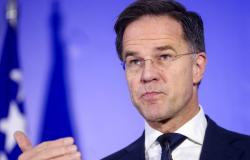With the official withdrawal of his only opponent, Romanian President Klaus Iohannis, Mark Rutte now has the path clearand the support of all 32 NATO countries, for become the next secretary general of the Atlantic Alliance. The question of Jens Stoltenberg’s successor, who will leave his post on October 1st, is thus resolved before the 75th NATO summit, which will open on July 9th in Washington. The outgoing Dutch prime minister will therefore find himself leading NATO at a crucial moment for the Alliance, with the war in Ukraine now underway for over two and a half years and there will be five in particular – underlines Politico – the challenges he will have to face.
The possible return of Donald Trump
Four weeks after Rutte takes up his new post, America will go to the vote and will be able to re-elect Donald Trump to the White House, which in its first four years had an attitude of open skepticism towards the Alliance. An attitude that is even more strengthened now that NATO is engaged in costly war support for Ukraine: during the election campaign, Trump threatened to cut US aid to Ukraine if he returns to the White House. If confirmed, this would be a huge blow to the credibility of NATO’s commitment to supporting Kiev, since Washington is the main military and economic supporter.
Not only. Trump’s return could also derail NATO’s plan to prepare Ukraine for future membership of the Alliance, restructuring and reforming its army, a necessary condition for being able to extend the invitation to join. In light of Trump’s recent attacks on Volodymyr Zelensky, whom the former president described as “the greatest salesman who ever existed” who always returns from international summits with promises of new funds”, the possibility that a new Trump administration confirms the security agreement signed by Biden with the Ukrainian president.
Putin’s new offensive in Ukraine next winter
Immediately after Rutte’s inauguration, Ukraine will most likely turn to him for help as winter approaches, when – it is expected – Russia will continue the already adopted strategy of attacks on power plants and dams, already used during the first winter of the war.
According to outgoing Secretary General Stoltenberg, it is crucial to mobilize more air defenses in Kiev’s favor to protect the energy grid and its employees. The allies are discussing this shipment, but the Europeans don’t have many systems to send and the Biden administration has to deal with congressional delays. Not to mention that the European countries closest to Russia are reluctant to give up their defense systems fearing possible threats to them.
Convince allies to pay contributions
NATO this week achieved a record number of allies who have reached the target of 2% of GDP allocated to military spending, 23 in all. But there still remains a third of the allies, including Italy, which in 2024 still does not meet the commitment made 10 years ago. “The negative record of our Mediterranean friends is the perfect weapon for Trump” a Baltic diplomat recently said speaking of the Southern European countries that did not hit the target.
The complaints of the ‘Eastern flank’
The countries bordering Russia have not been big fans of Rutte in recent months, recalling the Netherlands’ low military spending and complaining about the fact that the top NATO job always goes to a leader from Western or Northern Europe, even if countries on the eastern flank have now been in the Alliance for a quarter of a century.
The Estonian Prime Minister, Kaja Kallas, for example, decided not to enter the race to become the first woman to lead the Alliance, when she was told that she would not get the support of the USA, France and Germany, who feared that her appointment could be seen by Moscow as a sign of escalation of hostilities. Instead, Iohannis took the field, only obtaining the support, for a short time and for tactical reasons, of Hungary.
Eastern European countries will now likely demand greater representation in second-level positions, starting with that of deputy general secretary and those of assistant general secretary. Given that Rutte’s first task will be to appoint his deputy, there will therefore be pressure for him to choose someone from the ‘eastern flank’.
European leaders who love Putin
Rutte will not only have to convince Trump, in the event of his return to the White House, of the need to keep NATO alive, active and committed to defending Kiev. In Europe, there are growing parties, mostly far-right, which have pro-Russian positions and skeptical of the Alliance. And Marine Le Pen’s far-right RN could win in the next legislative elections in France.
A situation that Rutte knows well and firsthand, since he started considering the job at NATO when it became clear that his centre-right party, VVD, would lose in the elections which in fact were won by the Freedom Party , Geert Wilders’ far-right formation.





